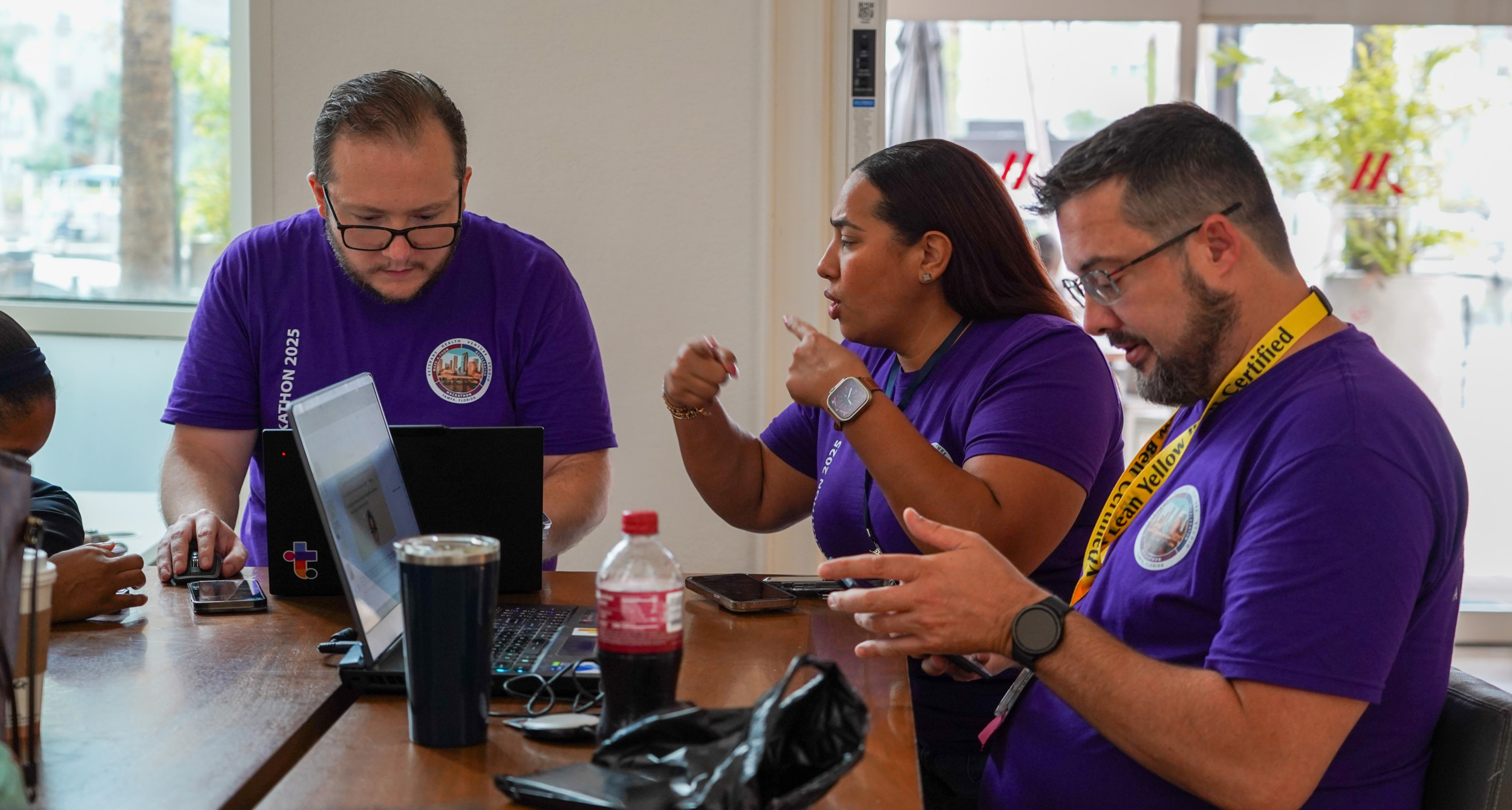
Hundreds of professionals work with veterans to find solutions to timely access to care, operational efficiency and community care coordination.
With an emphasis on finding solutions for three of the Department of Veterans Affairs’ biggest challenges — timely access to care, operational efficiency and community care coordination — hundreds of professionals from a variety of disciplines spent three days in Tampa, Fla., participating in the 2025 Veterans Health Hackathon.
The Tampa VA Medical Center hosted the second annual Veterans Health Hackathon in collaboration with The American Legion, MIT Hacking Medicine, Microsoft and VHA Innovation Ecosystem to identify, develop and support frontline-driven AI solutions that address challenges facing veteran healthcare. The event took place in conjunction with The American Legion’s 106th National Convention.
“It's very important for The American Legion because the solutions which we are creating here are going to go back and be used by the veterans in the VA,” said Dr. Indra Sandal, Chief of Innovation at the James A. Haley Veterans’ Hospital & Clinics in Tampa. “Veterans are sitting together with the VA employees and the people from the private sector to come together and create a solution of the biggest challenges veterans and the VA are facing.”
Mentors, subject matter experts and veterans guided interdisciplinary teams to address real-world problems through veteran-centered innovation.
Amy Morhaim, clinical informatics program support at Malcom Randall VA Medical Center in Gainesville, Fla., was among those participating in the hackathon.
“My coworker has been talking about the hackathon for awhile and she knows that I’m very passionate about improving the conditions for our veterans so that they can get increased access to timely care,” Morhaim said. “I’m absolutely loving it.
“It’s been extremely valuable to speak with the veterans here.”
Melissa Scollan-Koliopoulos from American Legion Post 246 in Wanaque, N.J., was among the Legionnaires providing input to the hacker teams.
“I just want to help all the hackers come up with solutions,” said Scollan-Koliopoulos, a professor at Sacred Heart University directing the psychiatric nurse practitioner program. “And I was really very impressed with the dedication of the hackers. How dedicated they are to veterans’ health care was very refreshing and really made me more excited to be here to help. A lot of them are veterans, but half of them are employees of the VA, so it’s very exciting to see that they care so much about the patients that they take care of and the organization itself.”
Sandal said they received 900 applications from 48 states, Puerto Rico and Guam for those interested in participating. Judges were going to select three winners from each area of focus, for nine total, with those projects moving on to a “makeathon” to fine-tune the projects.
“All these business cases are showcased, and they will come to Tampa, and then they present their showcase again to the judges, and judges will decide who will win” to advance to a six-month accelerator program,” Sandal said. Then they will work with Microsoft to create a prototype for piloting and testing in the VA hospital through the Veterans Health Venture Studio.
“The Veterans Health Venture Studio, we are trying to create the innovation ecosystem where we are developing people, community and technology so that we can create a transformational innovation solution for veteran care,” Sandal said.
- Convention

